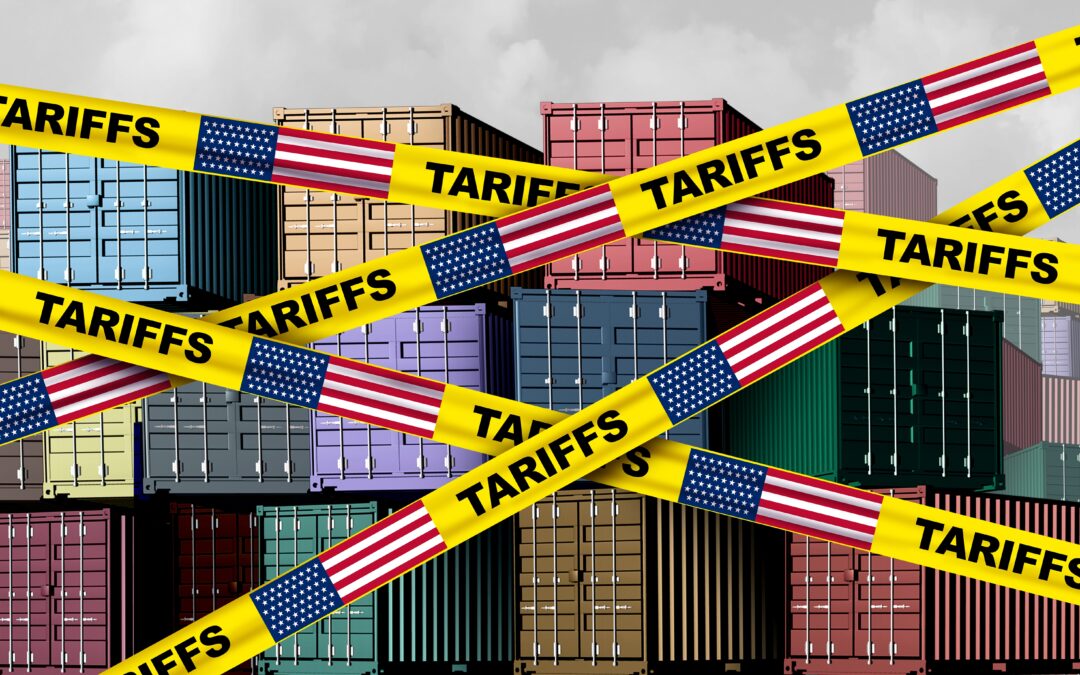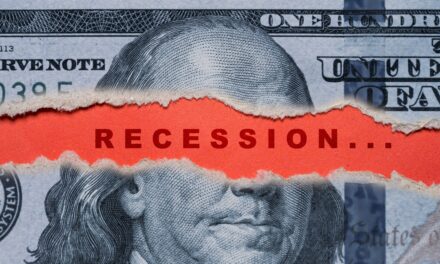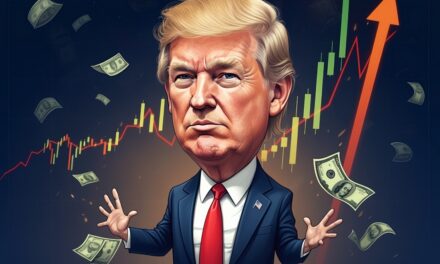Donald Trump’s reciprocal tariffs are officially live as of today — and markets are still struggling to find their way either up or down.
So in today’s episode, I wanted to share some “big picture” insights from an economist’s point of view, and explain why I believe we’re at or near the bottom of our current downturn.
Click below to start watching:
Video Transcript:
I am Andrew Zatlin and welcome to Moneyball Economics.
In recognition of the deep cuts that hit the stock markets last week, I’ve chosen to follow suit and cut off my goatee.
You may be familiar with the term “voodoo economics,” but I’m betting you are unfamiliar with the Zat-man brand of voodoo economics. See, in the Zat-man variation of voodoo economics, growing out my beard will — like a voodoo doll — force the stock markets to grow as well.
In reality, folks, I’ve been saying for several weeks that under a normal set of circumstances, the Fed should have already cut interest rates. The markets were expecting interest rate cuts to happen later on in the year, and I’ve been saying, no, they’ve got to happen in June, and they’re going to be deeper than expected. And this was all before we had the tariff turmoil.
Now that we’ve got the tariff turmoil, the markets are betting that the Fed will in fact not just hit us in June earlier than expected, but deeper than expected. We could be looking at 50 to 75 basis point cuts in just a couple of months. So the market’s going to get excited for that.
What needs to happen to get to those rate cuts? Because right now the Fed is out of step with everybody else. See, we’re all worried about the recession and the downstream ramifications. The Fed continues to be worried about inflation.
Yes, tariffs will create inflation, but that’s only in an economy that’s growing.
In a recession, tariffs don’t really create that much because demand is so low. For example, oil prices have already plummeted below $60. Copper is plummeting. Basically everyone’s gearing up for a slower economy and as a result, inflation just isn’t an issue anymore. So what does it take to get from here to the point where the Fed starts to throw in the towel in the next few weeks?
Well, we’ve got to see economic data rollover.
That’s a little bit of a challenge because recent and near-term economic data is still looking backwards to March and still was looking pretty good.
For example, let’s talk about payrolls. Payrolls came out last week. 228,000 jobs were added. This is a great number. Trump even took his opportunity to do a victory lap. Well, folks, guess what? That’s a one-time thing.
Next month it’s going to be terrible. Why? Because a lot of that 228,000, and by the way, I was one of the few predictors out there, the few forecasters out there who got it right … who said it’s going to be a pretty strong number. So I know what I’m talking about when I say that this number is, it’s not fairy dust, but it’s based on one-offs. For example, you had about 30-40,000 of that 228,000 come in because weather improved, and so restaurants hired more. A little catch up.
For example, the model was tweaked a little bit. That added 30-40,000 jobs. That’s not going to get repeated and on and on and on and on.
So next month, boom. Economic data when it comes to jobs and payrolls, it’s going to inflect down pretty sharply. Right now though, it looks pretty good. So if you’re looking backwards, no reason to pull the trigger yet, and the same thing’s going to apply next week, week. When we get a retail number out, that’s going to be super strong.
Again, Trump’s probably going to do a victory lap, but this number basically is the kiss of death.
Retail is going to come out super strong next week, but only because everyone last month was front running the tariffs. We saw auto sales jump 11% month over month, another million plus units sold.
Why? Because everyone wanted to buy last month before the tariffs kicked in and you saw prices jump five, 10, maybe 15%. Yeah, nobody wants to pay another $5,000 to $10,000 for their cars.
And so basically everybody bought furniture, whatever it is, whatever big ticket item you were buying that was imported. Well, that demand’s all been pulled into last month. So going forward, you’re going to see demand crater. It’s all been pulled in.
So the economic data starting in a few weeks is going to look terrible … and it’s going to force the Fed to act. Now, the markets might be already starting to look at that and say, “now’s the time to rally.” I don’t know.
I do see that we’re not at max pain yet.
Margin calls are going to possibly get underway. We’ll see. It’s two weeks out to that Friday when options day hits. We could be looking at some ugliness, some further drops, but by and large, we’re basically at the bottom-ish, and then we’re just going to shoot up again because rate cuts drive markets up.
Alright, what do I think about the recession? Let’s talk about that.
I did not think Trump was going to go nuclear, and so I’ve been sort of poo-pooing a recession. I can’t do that anymore. And here’s why.
It doesn’t matter if Trump relents from his tariffs, it doesn’t matter. The damage is already done.
Right now it’s home buying season. Housing is one third of our economy and they have just gotten the kiss of death for this season. Let me explain why…
The [average] 401(k)s down 15%. It’s really difficult for people to reach out and tap into their 401(k)s for down payments on houses or down payments on home projects or cars and so on and so on and so on. Trump could come in and he could pull some kind of rabbit out of the hat. “Tariffs are off.” Do that in a month or so, but it’s too late.
He’s spooked everybody. Big ticket spending is going to be pushed to the sidelines. A lot of spending in general is going to be pushed to the sidelines because just because Trump says, “Hey, we’re underway with some good stuff coming down the pipeline, tariffs may not be so bad.”
It doesn’t matter. It doesn’t matter. The cat’s already out of the bag. People are spooked because he could reverse course next month. People don’t know. So you’re going to have a lot of money pushed to the sidelines.
It’s not going to happen overnight with that form of spending. What I mean is a lot of the summertime vacation stuff and summer camp spending’s already been budgeted, already been paid for, tickets already bought.
I’m talking about going forward the rest of the summertime holiday season, people are going to be stingy year. They just don’t know with this guy, uncertainty is going to create a deeper recession regardless of what Trump does going forward.
But I think the primary trigger is going to be the housing market.
So when I say the housing market, you should be thinking concerns with banks. They’re not going to be doing as much loans. You should be thinking concerns with things like Home Depot and Lowe’s. Look, right now may not be the best time to be talking.
Shorting the damage is largely done, but I don’t think it’s all done in general. If the housing market goes as other economic data goes, the fed’s going to rush out a lot more rate cuts. It’s going to stimulate a lot of asset inflation like gold, surprisingly like houses because houses are going to be cheaper to buy. It’s just a question of do people have the cash? A lot of what ifs here, we can waste a lot of air on it, but one thing is certain, and that is rate cuts coming down the pipeline in June. Deep ones. Plan for it.
We’re going to win it folks.
Zatlin out.

Andrew Zatlin
Editor, Superforecast Trader & Moneyball Economics





